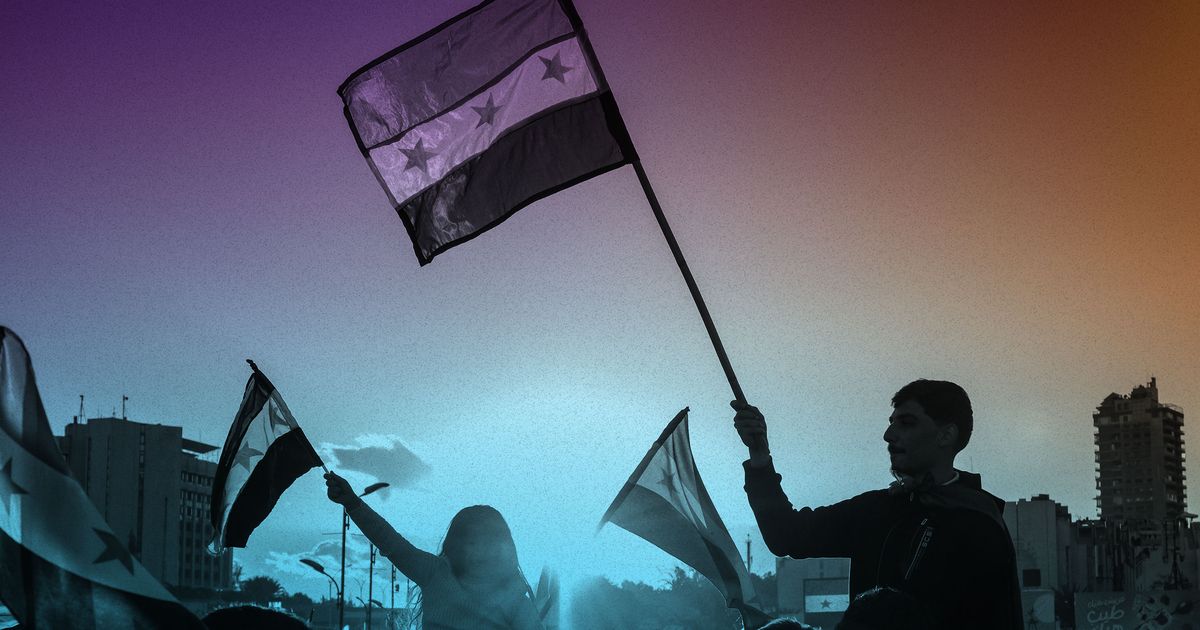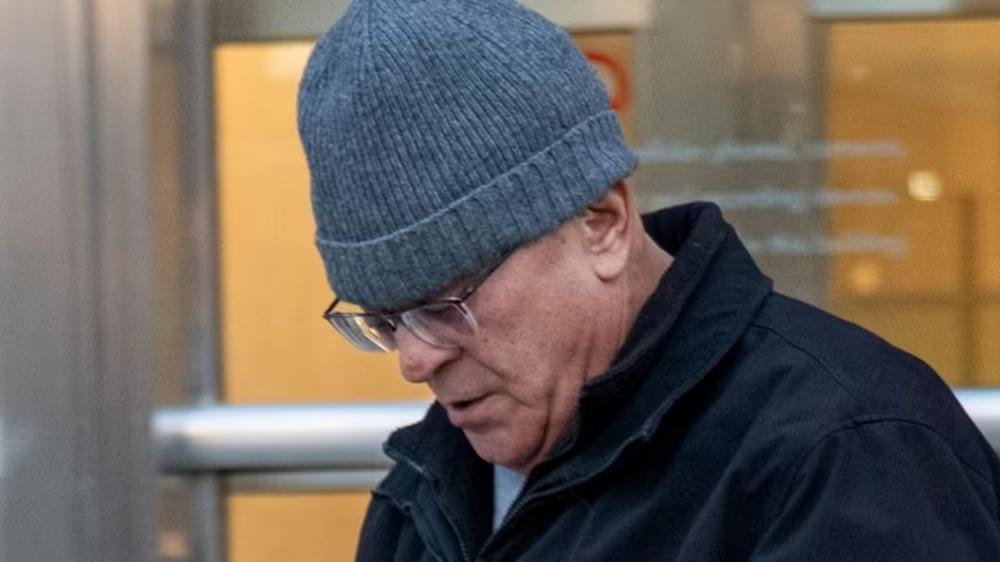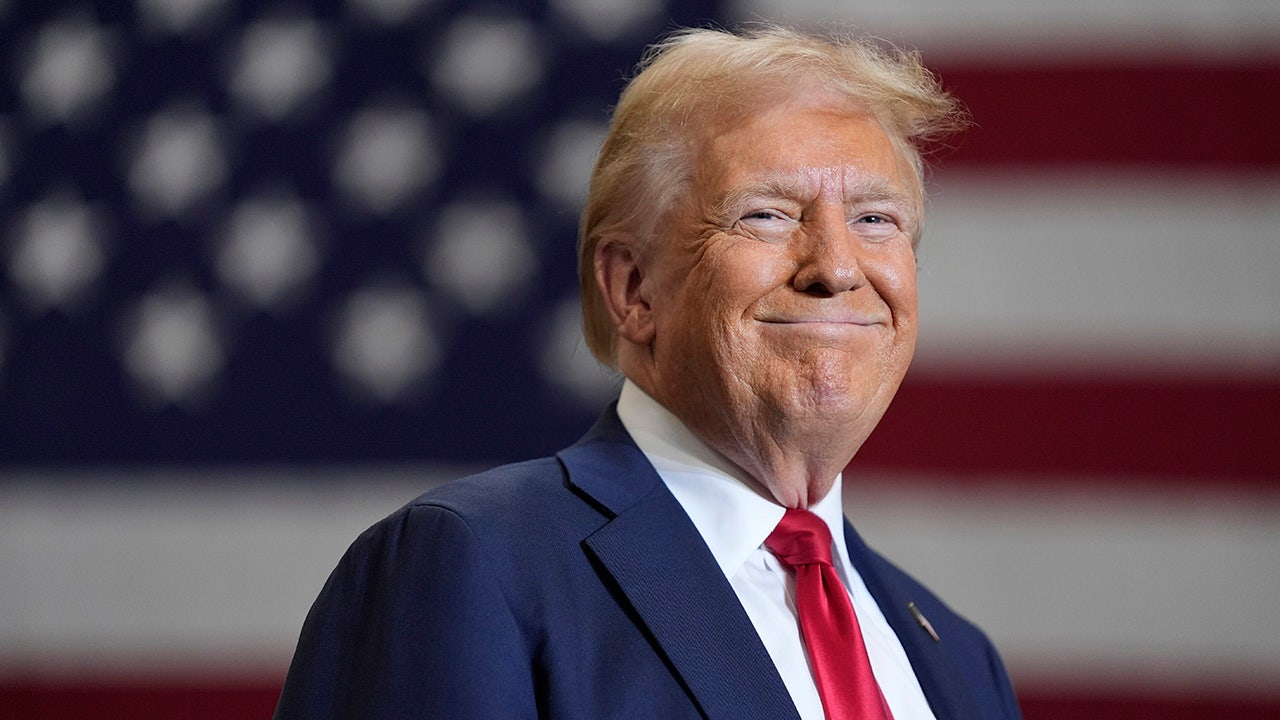World
They Shocked Assad and the World. What Will They Do Next?

For years, Syria’s long-running civil war was frozen in place. The country’s dictator, Bashar al-Assad, had used brutal means, including chemical weapons, to claw back territory taken by rebels in the early days of the war, which broke out after Assad violently suppressed the Arab Spring protests in 2011. With ISIS largely vanquished after the mid-2010s, Assad retained control of key cities and seemed in little danger of losing his grip on power. (The possibility of his ouster seemed so remote that countries that had previously isolated internationally were welcoming him back into the fold.) Then, suddenly, the rebel group Hayʼat Tahrir al-Sham, which had retained control of the country’s northwest corner, launched a shockingly successful offensive, overcoming Assad’s defenses — which were left vulnerable by the depletion of support from his battered allies Iran, Hezbollah, and Russia — with ease. HTS took back all of Syria’s major cities, other rebel groups seized previously government-held territory, Assad fled to Russia, and Syrians celebrated in the streets and scoured for disappeared loved ones.
What comes next? HTS has proven competent, and at least so far — pragmatic. But an enormous amount of uncertainty lingers on what the future holds for everyday Syrians, and for the country’s relationship with the outside world. For insight into these questions, I spoke with Sam Heller, a Beirut-based researcher, analyst, and fellow at the progressive think tank Century International.
You’ve been following events in Syria for a long time. How familiar were you with Hayat Tahrir al-Sham before it ousted Assad?
I’m pretty familiar. I haven’t met the leadership the way some of my colleagues have, but I’ve definitely researched them for a number of years. My focus had turned more to issues related to the state of the Syrian economy and some of the humanitarian implications of the country’s economic crisis. But I’ve written a lot about HTS previously in its various incarnations. So it’s been a real ride.
I ask because, from the outside, it really seemed like all this came out of nowhere. And I’m wondering if it also came out of nowhere for experts like you — or did it make sense that HTS was the group to finally accomplish what others couldn’t over 13 years?
The way they invested in their project and then ultimately mounted this attack — I think it makes sense. The real surprise was the collapse in Syrian military and government ranks, the way the Assad government imploded after HTS managed to initially overrun Syrian military lines and break through their initial defenses.
For someone who hasn’t been paying close attention, it seemed there was a jumble of various rebel groups, and it’s been difficult to distinguish them over the years.
A point I tried to make earlier in the conflict was that you didn’t need to know all the names and acronyms of the different factions because they weren’t all equally relevant. And it turns out that some of them occupied a superior position and the others revolved around them or functioned from a subordinate or auxiliary position.
Looking at this northwest province, Idlib, which became HTS’s home base — I was delving into this in 2016 and ’17, and it became clear that on paper there was a sort of rainbow of armed groups. But in practice, most of them fell under the auspices of either Jabhat al-Nusra and Jabhat Fateh al-Sham or its principal Islamist rival in the area, this group called Ahrar al-Sham. That’s how things were organized in terms of power in this region.
What ended up happening was that Jabhat Fateh al-Sham, along with a few other smaller factions, became Hayat Tahrir al-Sham. They crushed and defeated Ahrar al-Sham, establishing sole dominance over Idlib. And there were subsequent rounds when they eliminated smaller rivals or splittist or defector individuals and factions on the path to eventually consolidating more fully their grip on this region. They were ultimately successful in establishing sole functional control of this area. It’s something they leveraged to strengthen their negotiating position opposite the Turks and then other outside international interlocutors, to impose themselves as a necessary or an unavoidable negotiating partner — one that really just had to be dealt with for anyone who was concerned with Idlib.
HTS and its leader, Ahmed al-Sharaa, have presented themselves as quite reasonable. They’ve said a lot of moderate-sounding things about rebuilding the state and introducing a market economy and not necessarily imposing their views on everyone. But they are still hardline conservatives, and they have ruled as such in Idlib. Do you believe HTS’s rhetoric about being more pragmatic than ideological?
I think they are certainly pragmatic and smart; they have demonstrated that over time. I don’t think that necessarily means they are nonideological.
Of course, you can be both, but some people are more one than the other.
It remains basically an open question: What do they really believe, and what are their bedrock principles? Particularly as we’ve seen the group go through these kinds of iterative transformations — these changes in how it has dealt with other military and civilian forces within the opposition and the way it has presented itself to Syrians and to the outside world — it’s hard to know. At least to date, they have held fast to at least a minimum program of political Islamism. It would be surprising to me if they were prepared to really jettison that entirely. Certainly, they’ve made some kind of pragmatic modifications and tweaks on the way, but I take them seriously. They’ve been fighting all this time, and I think they’ve been fighting for something, for a vision of the country that is not just a reproduction of secular Ba’athism.
Wasn’t it affiliated with Al Qaeda for a while?
At the start, they were the Islamic State of Iraq’s advanced force in Syria. The Islamic State tried to reabsorb them when it announced the Islamic State of Iraq and Sham, which they rejected. They then defensively announced their affiliation with Al Qaeda, apparently as a way to maintain their independence from what is now ISIS.
Two great organizations to choose between.
Well, I’ve seen people make the case, and it’s plausible, that had they not done that, ISIS would’ve just gobbled up the entire Syrian opposition.
In terms of how they will govern the country, we need to think not just of their ideology and political vision but also about some of the practicalities in how they have controlled Idlib. Like I said, they eventually managed to subordinate Idlib’s other armed groups, though they never eliminated them. Even until this latest offensive, those groups were still present and functioning, just in auxiliary fashion, in support of HTS. But that process was years long and frequently violent. It’s not something that happened in some other opposition- held areas, which have remained more state of nature, anarchic.
What else do we know about their governing style?
In terms of civilian governance, HTS did some stage-managed legitimating exercises when they established their salvation government in Idlib, including a general conference to build up the perceived popular, broad-based support for this project. And they established a parliamentlike Shura council to ostensibly play a supervisory or advisory role in the government.
The government itself always seemed to be basically a mix of HTS people, HTS-linked but independent individuals, and then unaffiliated, colorless technocrats. But it was always understood to be under the control of HTS and al-Julani, who never had any brief in this government, who had no formal position in this interim political governing apparatus they built, but who was understood by everyone to be the boss of Idlib.
Now they have marched to Damascus. But I’m pretty skeptical that they will be able to reproduce a similar model over the whole of Syria, especially because they’re no longer in two-thirds of this one rural province. It’s a much larger space. It is more complex and diverse, and there are a lot of armed actors, including groups that remobilized and participated in the march on Damascus and who do not answer to HTS. So the idea that HTS can just dictate outcomes — I am unconvinced.
One thing they’ve done that’s interesting is integrating Assad’s bureaucrats into their government. It’s sort of the opposite of when Saddam Hussein was ousted and the U.S. led a big de-Ba’ath-ification effort to clear out his loyalists, which was later viewed as a huge mistake. HTS is instead co-opting the opposition.
I’m still waiting to see what they’re going to do with elements of the military and security forces. But certainly they seem to be commandeering the apparatus of the Syrian state, which is a thing we’ve seen elsewhere. ISIS did something similar in Mosul, for example — it inherited the largely intact institutions, at least on the local level of the Iraqi state, and just installed its own supervisory leadership within them.
I’ve been curious about how the remnants of the Assad regime feel about all this stuff — whether they’re cooperating because they have to or whether they may welcome the prospect of a new Syria.
It is hard to know what’s in people’s hearts. These are people who have lived a long time in a very scary authoritarian system and have become accustomed to dissimulation and performative loyalty, so you cannot necessarily take everyone’s welcome of this new political order at face value. And there are definitely people who are voting with their feet, attempting to leave the country and flee to Lebanon. There are also people still around who I think are distressed by some of what’s going on, including some retaliatory violence in areas of the Syrian coast. But the real extent of it is hard to know.
Also, Syrians who had fled the regime and are now returning.
It definitely sounds like there are people coming back and people who are considering it. Refugee return from Lebanon to Syria is something I’ve been working on recently — an ongoing research project. Then there is a segment of refugees, Syrians abroad, who were fleeing persecution by the Assad government or conscription into the Syrian military, and others who were fleeing more general insecurity and violence. They were either running away from or not returning because of the country’s general socioeconomic collapse over the past several years, since 2019, 2020, in particular.
So now the Assad government is gone, but I think if people are going to return sustainably, Syria needs to be a place that is safe, where there is law and order, and where there are livelihood opportunities and some public services. People have got to be able to put their kids in schools.
And this is not a state that has been doing well over the past few years, right?
HTS or whatever new government takes shape is inheriting a very depleted Syrian state and economy, a country that is already in deep crisis.
I guess you could look at that two ways. One is that it’s a Herculean task to rebuild the country. The other is that the bar is low, so any small improvements, anything they do to open society a bit, could be seen as a success.
I hope they’re able to meet people’s minimum humanitarian needs in the near term. I’m very concerned about that. But there have been cases elsewhere in the region where economic hardship has soured people on a revolutionary or a post-authoritarian system — in Tunisia for example. It’s not super-auspicious circumstances for whoever takes over in Syria.
What’s your sense of how this group will or will not realign Syria on the international stage? It probably could benefit from aid from neighboring or distant powers. The Assad regime was very much in league with Iran and Hezbollah, and this group isn’t. They seem to really have relations only with Turkey right now.
Turkey and Qatar are their most natural, ready partners.
Why’s that?
Those two countries were invested over the long term in the Syrian opposition and in the maintenance of some of these remaining opposition-held areas in northern Syria along the Turkish border, even as some other regional governments eventually fell away or reoriented themselves on Syria. Turkey played a more visible, direct role, but I’d at least heard previously that some of Turkey’s involvement was subsidized or supported by Qatar, which is a close ally of Turkey.
Why is Qatar so invested?
Qatar has always had its own independent political line distinct from some of the other Gulf monarchies — occasionally in ways that I think have deeply irritated countries like the UAE and Saudi Arabia. And they’ve supported Islamist groups — the various versions of the Muslim Brotherhood but also other members of the broader Islamist movement across the region. That’s a long-standing thing.
It’s also a clear point of tension between them and the UAE, for example, which is very fiercely anti-Islamist and which recently repaired its relations with the Assad government and was attempting to midwife the Assad government’s international rehabilitation and economic revival. I would be surprised if the UAE is excited to support this new Syrian government.
Meanwhile, the U.S. still classifies HTS as a terrorist group.
The U.S. and many others, including Turkey, technically, and the U.N. Security Council.
Do you think that’s going to change soon, assuming it stays on a path of relative moderation?
I think it could, if only for practical reasons. Syria is extensively sanctioned already — whole sectors of the economy, key public institutions. How those regimes interact and then affect the functioning of the Syrian state and economy is not clear, but it is obviously extremely worrying. I think the competing impulse or impulses for a lot of governments will be between, on the one hand, concerns about HTS and the character of any new Syrian government, and on the other, an interest in Syria’s stability and, hopefully, post-conflict recovery. Which also matters to countries that would like to see the return of Syrian refugees and prevent potential new out-migration from Syria.
I’m hoping that for most countries, the priority of stabilizing Syria, of making it a place where people can live again, wins out over whatever — I think understandable — discomfort they may have at the country’s new government.
This interview has been edited for length and clarity.









